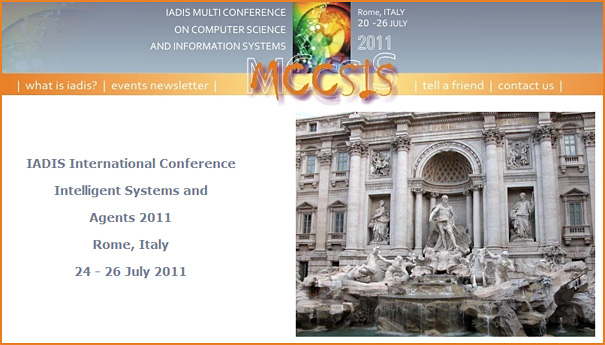From DSC:
In my mind, this area of intelligent systems and agents is one of the most important areas to watch in the years ahead. Such efforts should help us develop sophisticated systems that can help deliver personalized, customized education at the K-12 and higher ed levels…and perhaps will be relevant in the L&D space as well.
The innovations that come from this area may make hybrid-based — as well as 100% online-based learning — incredibly powerful!
If someone can develop such systems and make them available at far cheaper prices than exist today, a quality “Walmart of Education” will truly have been built.
Per the Call for Papers section, the topics for this conference include, but are not limited to:
| Area 1 – Intelligent Systems
– Algorithms – Artificial Intelligence – Automation Systems and Control – Bioinformatics – Computational Intelligence – Expert Systems – Fuzzy Technologies and Systems – Game and Decision Theories – Intelligent Control Systems – Intelligent Internet Systems – Intelligent Software Systems – Intelligent Systems – Machine Learning – Neural Networks – Neurocomputers – Optimization – Parallel Computation – Pattern Recognition – Robotics and Autonomous Robots – Signal Processing – Systems Modelling – Web Mining
|
Area 2 – Agents
– Adaptive Agent Systems – Agent Applications – Agent Communication – Agent Development – Agent middleware – Agent Models and Architectures – Agent Ontologies – Agent Oriented Systems and Engineering – Agent Programming, Languages and Environments – Agent Systems – Agent Technologies – Agent Theories – Agent Trends – Agents Analysis and Design – Agents and Learning – Agents and Ubiquitous Computing – Agents in Networks – Agents Protocols and Standards – Artificial Systems – Computational Complexity – eCommerce and Agents – Embodied Agents – Mobile Agents – Multi-Agent Systems – Negotiation Strategies – Performance Issues – Security, Privacy and Trust – Semantic Grids – Simulation – Web Agents |









